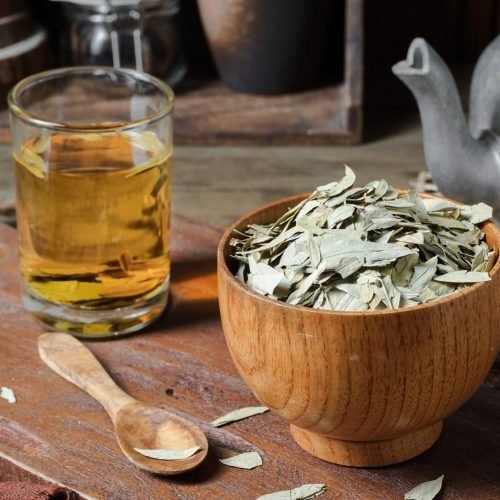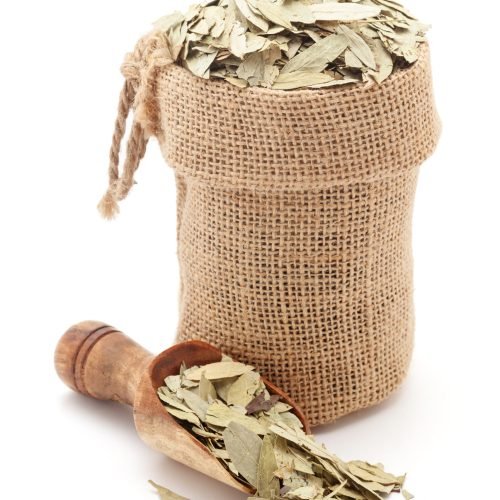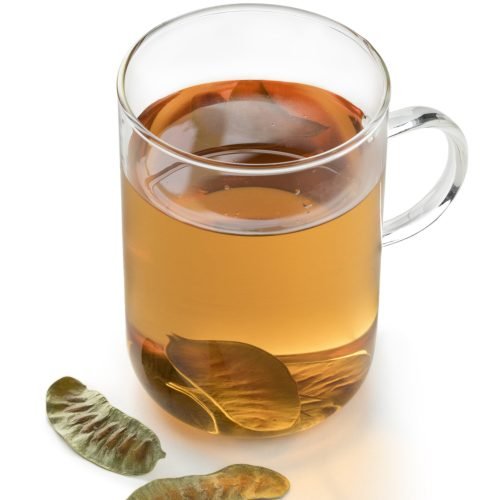Senna Tea: A Quiet Companion for Digestive Balance
Aloe vera healing rituals that will connect you with your essence.
The Gentle Power of Senna Tea
Senna tea, a gentle help for digestion.
Please note: These links are affiliate links, and I may earn a small commission if you purchase them. Your support helps me continue sharing these stories and insights with you
The Magic and Medicine of Senna Tea
Among medicinal plants, senna tea has earned its place as a trusted remedy, used for centuries across North Africa and the Middle East. The herb behind the brew, Senna alexandrina, grows in the dry, sunlit regions from Egypt to the Arabian Peninsula. For generations, people have gathered its leaves and pods to prepare a tea known for supporting digestion and gently clearing the system.
Senna is deeply rooted in traditional herbal medicine. It is not a wellness trend, but a plant used with care and understanding. Those familiar with it know that healing doesn’t always need to be dramatic. Sometimes, it begins quietly with a warm cup and a thoughtful pause.
The plant’s key compounds, sennosides, stimulate the intestinal lining and help the body do what it already knows how to do. Senna doesn’t force or suppress. It works in partnership with the body’s natural rhythm, offering support for release, both physical and, for many, emotional.
A Personal Story of Letting Go with Senna Tea
Sometimes the body doesn’t let go easily. You feel it in the belly, a heaviness, a pause that doesn’t respond to your usual efforts. I’ve been there, not always knowing what my body needed or how to support it.
Constipation is rarely spoken of openly. It does not fit into curated feeds or light conversation. But for some of us, it is more than a passing discomfort. It becomes a lived experience of holding. Holding waste. Holding stress. Holding emotions without a clear outlet.
In my life, it often shows up in moments of transition. When something is ending or beginning. When creativity feels blocked or I have taken on more than I can carry. The stuckness moves beyond the gut. It touches everything.
I start with gentle routines: warm water in the morning, meals rich in greens and seeds, a twist on the yoga mat, breathing, stillness, and speaking kindly to my belly. Most of the time, these practices are enough, but sometimes care needs a companion.
That is when I prepare senna tea. Not for quick relief or control, but to honor the wisdom this plant has carried through generations. Senna does not rush or override. It supports. It reminds.
When I prepare it, I do so with reverence. Not to fix something, but to meet my body where it is. I do not use it often. But when the weight lingers, and the usual ways are not enough, I listen. And sometimes, senna answers.
Softly. Clearly. You do not have to hold this anymore.

Benefits of Senna Tea
Senna Tea is A Natural Laxative
Sometimes the digestive system slows down, and the body needs a little help to get things moving. That’s where senna comes in. It gently stimulates the muscles of the colon, supporting natural movement and encouraging the body to let go of what it no longer needs. This is why senna has been used for centuries as a trusted remedy for occasional constipation.
The active compounds in senna, called sennosides, work by mildly irritating the lining of the colon, which increases muscle contractions and helps ease bowel movements.
Source: National Center for Complementary and Integrative Health (NCCIH)
Mild Relief for Occasional Constipation
At times, stress, travel, or changes in routine can leave your system out of balance. When that happens, senna can offer gentle support. It’s not aggressive or overwhelming, more like a steady hand helping your body find its rhythm again. Used occasionally, it helps restore digestive flow without the intensity of stronger medications.
Clinical studies suggest that senna is effective for short-term relief of constipation and tends to cause fewer side effects than more potent laxatives.
Source: Mayo Clinic – Senna
Colon Cleansing: A Gentle Reset Before Procedures
Before a colonoscopy or certain medical procedures, the body needs to be cleared to allow for accurate examination. In these moments, senna can serve as a reliable ally, gently emptying the colon to ensure nothing obstructs the view. This preparation supports clarity, precision, and better medical care. Senna is commonly included in bowel preparation protocols due to its efficacy in promoting bowel evacuation.
— World Journal of Gastroenterology, 2017
Weight Management: A Temporary Effect?
Some people turn to senna tea hoping for a feeling of lightness or a slimmer appearance. Its laxative effects can lead to short-term water loss, which may create the impression of weight loss. However, this effect is only temporary and does not reflect true fat loss or lasting change. sciencedirect.com
A recent animal study in PLOS ONE found that supplementing high‑fat‑diet rats with senna leaf powder helped reduce body weight and fat accumulation compared to untreated rats. While promising, these results are in animals and reflect senna’s influence on fat storage and metabolism, not a shortcut for weight loss in people.
In human use, senna is not recommended as a weight-management tool. Its main effect—temporary water reduction—does not support sustainable or healthy weight loss.
Senna Tea in Detox Routines
Senna tea often features in detox routines due to the belief that clearing the bowels aids elimination of unwanted substances. Although it supports bowel movements, its effects are localized and don’t contribute to full-body detoxification.
According to Harvard Health Publishing, the body already has a highly effective system for detoxing through the liver, kidneys, lungs, and skin. The role of senna is to support colon emptying, not to cleanse the entire body of toxins.
Still, some people report feeling lighter or refreshed after using senna tea. This sense of renewal may come from digestive relief rather than actual detoxification.

How I Use Senna Tea with Intention
How to Prepare Senna Tea
Materials
- 1 teaspoon Dried senna leaves ( or 1 senna tea bag)
- 1 cup Hot water (not boiling)
- 1 slice Silician lemon (optional)
- 1 Teaspoon Honey (optional)
Instructions
- Boil and Cool the Water: Start by bringing water to a boil, then allow it to cool slightly. Next, pour the hot (but not boiling) water over the senna leaves or tea bag in your cup. Avoid boiling water directly, as it can extract harsh compounds; a gentle infusion is more effective and gentler on the body.
- Steep with Patience: Cover the cup and let the tea steep for 5 to 10 minutes if you’re new to senna, or up to 15 minutes for a stronger effect. The longer it steeps, the more potent its laxative properties.
- Strain and Add Lemon: If using loose leaves, strain the tea. Add a squeeze of lemon to soften the earthy, slightly bitter taste. A small spoonful of honey can also make it more pleasant, though it’s not necessary.
- Enjoy!
Notes
-
- Drink your senna tea in the evening, preferably a few hours before bedtime, as it typically takes 6 to 12 hours to take effect. Make sure you have access to the bathroom the next morning, just in case.
- Start gently. If it’s your first time, begin with a weaker brew (5 minutes) and observe how your body responds.
- Senna can draw water into the colon; be sure to drink plenty of fluids throughout the day to prevent dehydration.
- Use occasionally. Senna is not meant for daily use. It’s a short-term solution, not a long-term habit.
A Note on Senna Tea: Use with Care
Senna tea is effective, but it should be used mindfully. Excessive consumption may cause cramping, dehydration, or discomfort. Frequent use can also reduce your body’s natural ability to have regular bowel movements
Senna tea is not recommended if you are pregnant, breastfeeding, or have health conditions related to the kidneys, heart, or digestive system. Before using senna, consult a healthcare provider if you are taking medications or have ongoing health concerns.
Senna tea is intended for short-term use and may provide relief during occasional constipation or gentle cleansing. However, it is not designed for daily consumption.
Herbal support works best when you listen to your body. Senna tea is not about forcing results. It is about offering the body a little support when needed, then stepping back to let balance return naturally.
Final Thoughts
Senna is often known for what it does, but it’s also worth pausing to notice what it is: a sun-loving plant with delicate yellow flowers that thrive in dry, open spaces. There’s a quiet resilience to it. A wisdom in how it grows, when it blooms, and how it gives.
As with all herbal allies, the power of senna lies in how we choose to meet it: with awareness, with respect, and with curiosity.
If you’ve had your own experience with senna or other plants that support your rhythm and well-being, I’d love to hear. Your insights might offer encouragement to others on a similar path.
Let’s keep this conversation alive, rooted in care and shared knowledge.
With care,
Lisa

